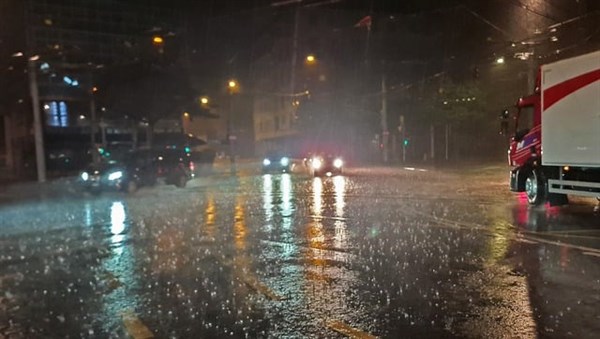
While the SNCF had anticipated the violent storms by suspending its services in around fifty departments, truck drivers found themselves on the front line, exposed to the brutality of a storm of rare intensity. Late Wednesday, June 25, a storm surge of exceptional magnitude swept across France, from the Southwest to the Hauts-de-France region, transforming the roads into veritable open-air traps.
In Allier, gusts reached up to 135 km/h in Montbeugny, bringing down around sixty plane trees on the Nationale 7 road. Trucks became trapped between the trunks, requiring the joint intervention of firefighters, DIR agents, and even farmers who came with their chainsaws to clear the roads. Further north, in Bailleul-le-Soc in Oise, record winds of 140 km/h were recorded, equivalent to those of a major winter storm.
The consequences were numerous: roads were cut, power lines were torn down, roofs were blown off, and, above all, thousands of truckers were forced to make emergency stops, sometimes without shelter or immediate assistance. In the Centre-Val de Loire region, 29 roads were closed to traffic, and more than 9,000 homes were without power in the Loir-et-Cher region. In Blois, the Notre-Dame-de-la-Trinité basilica lost part of its roof, while centuries-old trees were uprooted in the Boulogne forest.
The observed meteorological phenomenon resembles a "derecho," a storm pattern feared for its linearity and violent winds. This type of event, still rare in France, is becoming more frequent due to global warming. In a single day, more than 70,000 lightning strikes were recorded across the country, making June 25 the most lightning-struck day of the year.
Truck drivers, often overlooked in crisis reports, were nevertheless among the most exposed. Forced to continue their mission despite weather warnings, they faced extreme conditions: zero visibility, flooded roads, inoperable GPS due to internet outages, and sometimes even fatal accidents. In Mayenne, a driver lost his life after hitting a fallen tree on the road.
Faced with this situation, several transport unions are calling for better coordination between meteorological services, local authorities, and logistics companies. In particular, they are demanding emergency stop protocols for heavy goods vehicles, as well as secure fallback zones in the event of an orange or red alert.
This latest extreme weather event, which also caused the death of a teenager in Tarn-et-Garonne, has rekindled the debate on the resilience of French infrastructure and the protection of road safety professionals. While experts agree that such events will become more frequent, the question is no longer if , but when .